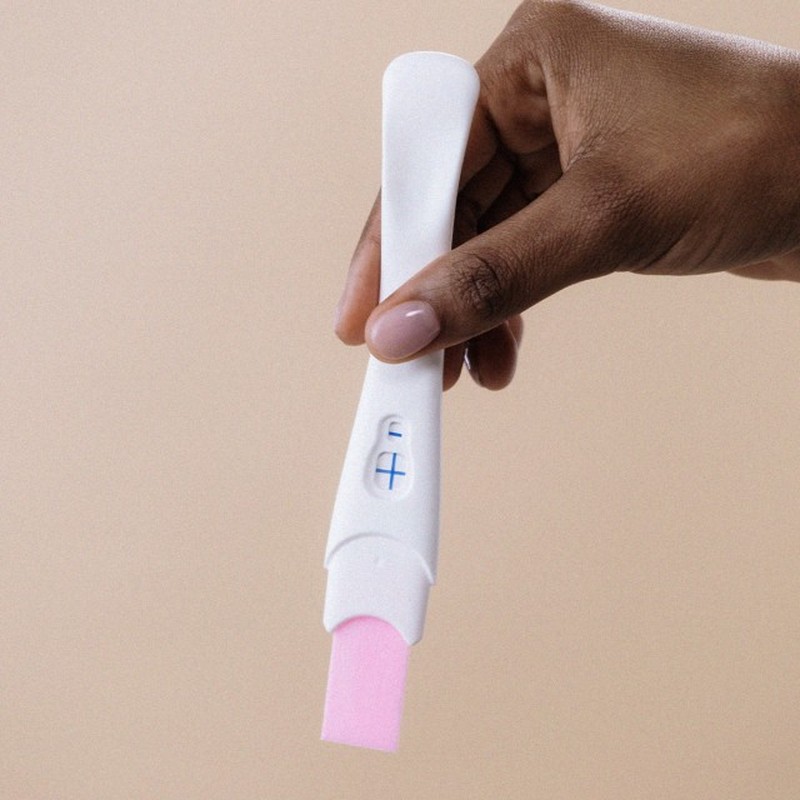What The Fertility Experts Want You To Know About Getting Pregnant
How long does it take the average couple to fall pregnant?
“It’s crucial to understand that every couple’s fertility journey is different, and many factors come into play when you’re trying to conceive, including age, the couple’s general and reproductive health, their lifestyle, and how often they have sex. On average, in over 80% of couples who engage in regular (every two to three days) unprotected sex, the woman will become pregnant within 12 months. After this time, half of the women who have not yet fallen pregnant will go on to become pregnant in the following 12 months. It is not clear how age affects fertility in men, but the belief that women’s fertility somehow drops dramatically after they turn 35 is now being challenged. The latest research indicates the decline in the number and quality of a woman’s eggs is much more gradual and slower than once thought.” – Lesley Gilchrist, registered midwife & co-founder of My Expert Midwife
How long should you try for before seeking extra support?
“Throughout the UK, GPs will commonly diagnose a couple with infertility when they have not managed to get pregnant after a year of trying. A GP will expect couples to try for 12 months before seeking assessment if the woman is under 36 years old and for six months if she is older than 36. But couples should visit their GP sooner if they know or suspect they have medical factors that may cause fertility issues, or if they have been trying for six months via donor or partner insemination at home.” – Lesley
“I look at two things when I’m assessing a couple – age and time spent trying. And what I mean by ‘trying’ is ‘really trying’ – having lots of sex, changing lifestyle and taking the right supplements. If you’re 35 and after six months nothing has happened then think about having some tests. Infertility is usually diagnosed when a couple hasn’t managed to conceive after a year of trying. However, I don’t like the word ‘infertile’ and don’t use it in my clinic. Nobody can tell you that you can or can’t get pregnant. This is just an added label women have to bear.” – Zita West, founder of The Zita West Clinic
Should your GP be your first port of call?
“Yes, unless you opt for private care. After an initial assessment, and possibly tests, your GP will refer you to a fertility specialist at an NHS hospital or fertility clinic for further tests and assessment. The availability of NHS-funded fertility treatments, as well as waiting times for treatment, vary across the UK. Currently, waiting lists can be very long in some areas, usually at least six months.” – Lesley
What are some of the initial tests that will be done?
“At the very minimum, you should have a full hormone panel done between days two to five of your cycle, covering FSH, LH, oestrogen, prolactin, TSH, SHBG and testosterone, as well as a standalone progesterone test around six to seven days after ovulation. It can also be helpful to get your levels of vitamins D and B tested as well as CRP (an inflammation marker), and a transvaginal scan to check for uterine abnormalities such as fibroids, polyps, or conditions that affect the uterine lining such as adenomyosis. An expert should also look to rule out hormonal imbalances that may be affecting ovulation, such as thyroid disorders, high testosterone, or polycystic ovary syndrome (PCOS), which can affect egg quality and the uterine lining.” – Rachel Sherriff, fertility acupuncturist & founder of The Fertility Suite
“Your GP should also recommend a full semen analysis to establish the health and motility of the sperm, as well as sperm count, and a screening for sexually transmitted diseases, as some can directly impact male fertility. An examination of the testicles and penis will also rule out any lumps, deformities or potential abnormalities.” – Lesley
What are some of the most common problems discovered?
“In approximately 30% of couples who struggle to conceive, there are issues relating to male fertility. These range from erectile or ejaculation dysfunction, to low sperm count, suboptimal sperm health (their morphology – shape – and/or their motility), blockages in the male reproductive system, and prostate problems. In another 30% of couples struggling to get pregnant, the issues are related to female fertility and can include ovulatory problems, conditions affecting the uterus (like endometriosis), PCOS and blocked fallopian tubes. A combination of fertility issues affecting both the man and the woman (for example, a low sperm count and issues with ovulation) is reported in 20% of couples who struggle to have a baby, while for the remaining 20% of cases, the causes of infertility is unknown.” – Lesley
“Often, the male side of things is under investigated and more emphasis is placed on the woman. In around 40% of couples struggling to conceive, the man will have an undiagnosed varicocele. The World Health Organisation (WHO) now recommends a sperm DNA fragmentation test should be included as part of the standard fertility mark-up. An inability to conceive could also come down to an undiagnosed thyroid condition. Low levels of thyroid hormones can hinder ovulation and increase miscarriage risks, but symptoms can overlap with other conditions or can be considered ‘normal’, such as tiredness, sluggish bowels or dry skin. Therefore, women fail to get the diagnosis or treatment they need to optimise their hormones for fertility.” – Rachel

Do you have any advice for finding a reputable fertility clinic?
“If you have a diagnosed condition or think you know why you aren’t conceiving, then a good starting point is to find a clinic or consultant that specialises in this area. Arrange to visit the clinic or have a phone call with one of the nurses – lots of clinics now offer open days or free calls to enable you to make an informed decision. Find a clinic that doesn’t just sell you IVF as the first-line treatment. IVF isn’t a guaranteed success and for many couples there are other steps that can be taken first. Ask the clinic whether there is anything else that can be done before you start IVF to optimise your chances. Avoid clinics that offer a ‘standard’ protocol that doesn’t take into account your unique clinical picture.” – Rachel
What are some of the steps you can take before IVF?
“If you are having problems with ovulation or irregular cycles, ovulation stimulation is a sensible first step. However, this is only appropriate if your partner has good quality sperm and your fallopian tubes are clear. You can usually take ovulation stimulation drugs for up to six cycles, during which time we would usually provide you with some fertility awareness coaching (in order to make sure you have optimally timed sex – you might be surprised at how many couples do not) and also monitor you closely to check that the drug is having the desired effect. This would involve having a number of scans and a blood test for progesterone to confirm that ovulation is occurring. Most women will ovulate with the use of these drugs and many will conceive. However, there are situations where ovulation may not occur despite the use of ovulation-boosting drugs.” – Zita
What are your options after this?
“If ovulation induction methods haven’t worked after six cycles, IUI is an option. In IUI, the male partner provides a sperm sample and we then separate fast-moving sperm from more sluggish or non-moving sperm. The fast-moving sperm are then placed into a woman’s womb close to the time of ovulation. Success rates for IUI are lower than that of IVF, but the procedure is much quicker and less expensive, and depending on your individual circumstances, can sometimes be done without fertility drugs to boost egg production though, as you would expect, this reduces the success rate further.” – Zita
At what stage does IVF come into the picture?
“IVF isn’t always the last resort. For example, in women that have blocked fallopian tubes or for couples where the man has poor quality sperm, IVF is often the only option. IVF can be done via the NHS and privately – for the latter, it can cost anywhere between £5,000 to £10,000 per cycle depending on your circumstances. Factors that can increase the cost include certain medications such as growth hormone or additional progesterone injections. For women who have had repeated unsuccessful fertility treatment perhaps due to age-related issues with egg quality, using an egg donor is often the last option.” – Rachel
“IVF can be done on the NHS, yet who gets NHS-funded IVF treatment is a decision made by the couple’s or woman’s local integrated care board (ICB). This is why eligibility criteria differs across the country. If the required criteria is not met, or the couple/woman opts for private care, one cycle of IVF could cost in excess of £5,000.” – Lesley
Is the protocol the same for secondary infertility?
“Many women get pregnant easily the first time without even thinking about it, and assume the same will happen again. Of course, it’s dependent on age and your health, but very often with secondary infertility, women are older, which can impact how quickly things happen. Some women also start trying for their second baby very quickly, often within six or seven months of having their first baby, so you also have to factor in a lack of sleep, work schedules, and not as much sex. It’s important to check the little things, like your iron and thyroid levels, too.” – Zita

Natasha Evans, registered nutritional therapist specialising in fertility and gut health, shares her top lifestyle tips for supporting your fertility…
Embrace A Mediterranean Diet: “While the impact of diet on fertility is now relatively well known within the medical community, such that many IVF clinics now have in-house nutritionists, knowledge is still limited among the general public. Having a well-balanced diet can ensure you have all the nutrients you need to support hormone levels, optimise egg and sperm quality and grow a healthy baby. The most studied diet for fertility is the Mediterranean diet, which includes a diverse range of plants, oily fish, healthy fats, eggs and good-quality meat.”
Stop Smoking: “The evidence is crystal clear on this one – smoking is highly detrimental to fertility, pregnancy outcomes and the health of the baby once born. This applies to both partners, as smoking damages egg and sperm quality.”
Don’t Over Exercise: “Exercise can support you on your fertility goals, but don’t overdo it. When trying to conceive, avoid any very strenuous exercise like marathon training or intense HIIT classes.”
Learn How To Deal With Stress: “High levels of stress affect both male and female fertility. For example, it affects ovulation in women and testosterone levels in men. Make a list of the things, and people, that you find stressful, and another list of the things that help you destress. When trying to conceive, try to reduce those things in the first list as much as possible and aim to do at least one thing from your de-stress list every day. Get comfortable saying “no” to things that drain your energy and “yes” to things that fill up your cup.”
Remove Toxins: “Our modern environment is laden with toxic chemicals, which exert a hormone-like effect on the body and interfere with fertility. Reduce plastic in the home, ditch plastic food storage containers and switch to non-toxic cleaning products.”
Drink Sensibly: “Alcohol intake is negatively correlated with fertility for both men and women. I recommend cutting out alcohol for both partners three months before trying to conceive or starting IVF. If you do drink, quality matters. A natural, biodynamic red wine is better than a supermarket white wine.”
Finally – do you have any other words of wisdom?
“It takes three months for your eggs to be matured prior to ovulation, so whether you’re trying naturally or about to undergo IVF, give yourself time to improve your nutrition, exercise and general wellbeing. Try not to be too restrictive – for example, that piece of cake you have on a Sunday isn’t going to be the deal breaker between a healthy pregnancy or not. At the same time, it takes 72 days for sperm to reproduce, so patience is key. At the same time, listen to your body and look out for signs that something may be amiss – an irregular cycle, heavy or painful periods, hair loss, low libido, low energy or poor digestion are all signs that things aren’t optimal hormonally.” – Rachel
For more information and support, visit MyExpertMidwife.com, TheFertilitySuite.co.uk, ZitaWestClinic.com & NENutrition.co.uk.
DISCLAIMER: Features published by SheerLuxe are not intended to treat, diagnose, cure or prevent any disease. Always seek the advice of your GP or another qualified healthcare provider for any questions you have regarding a medical condition, and before undertaking any diet, exercise or other health-related programme.
DISCLAIMER: We endeavour to always credit the correct original source of every image we use. If you think a credit may be incorrect, please contact us at info@sheerluxe.com.


